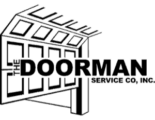If you’re in the market for a new garage door opener, you’ve probably discovered that there are hundreds of models to choose from. So finding the perfect one can be tricky. There are so many factors to consider before making a final decision, and one of the most important ones is drive type.
Due to their reliability and affordable price, chain-driven garage door openers have been the gold standard for years. However, belt-driven systems have recently been giving homeowners a run for their money. So is a belt-drive garage door opener right for your home? Were here to help you find out.
How Do Belt Drive Garage Doors Work?
As its name suggests, belt-driven garage door openers use a steel-reinforced rubber belt to open and close a garage door. In trolley garage door systems (the most common type), a curved arm connects the garage door to the rail that runs down the length of a garage. When the opener is activated, the belt pulls the arm inward or pushes it outward, allowing the door to open and close.
Essentially, belt-driven garage door openers work the same way as chain-driven systems, but since there is no metal-on-metal contact, belt drives like those made by LiftMaster, operate far quieter and more smoothly.
What Are The Pros?
Quiet operation – The rubber used to make garage door belts is soft, flexible, and tightly fits onto the opener’s sprocket, making belt-driven systems far quieter than both chain and screw-driven garage door openers.
They require minimal maintenance – While belt-drive garage door openers cost more than chain drive systems initially, they can save you a lot of money in the long run. Unlike chains, garage door belts don’t need to be lubricated, and since there is no metal-to-metal contact, wear and tear are minimal, allowing for extended periods of use with little to no maintenance.
Fast opening and closing– Overall, belt-driven garage door openers are the fastest of the available drive types.
What are the Cons?
Lifting capacity – While belt-driven systems continue to improve, they can’t keep up with their chain-driven counterparts just yet when it comes to overall lifting capacity. So if your home has anything larger than a single-car door, a chain or screw drive will probably be the best option for you.
Temperature sensitivity – Extreme temperatures can cause problems with belt-driven garage door openers. Rubber belts can stretch in the heat and shrink in the cold, leading to tension issues. If you don’t have a climate-controlled garage, you may be better off with a different type of drive system.
Price – Belt-driven garage doors are in the middle of the pricing scale. They are more expensive than chain drives but more affordable than direct or screw-driven systems.
Should You Go with a Belt-Driven Garage Door Opener?
Not quite sure if a belt-driven system is best for your home? Contact us today! We are happy to answer any questions you might have about garage door installation and drive types.
